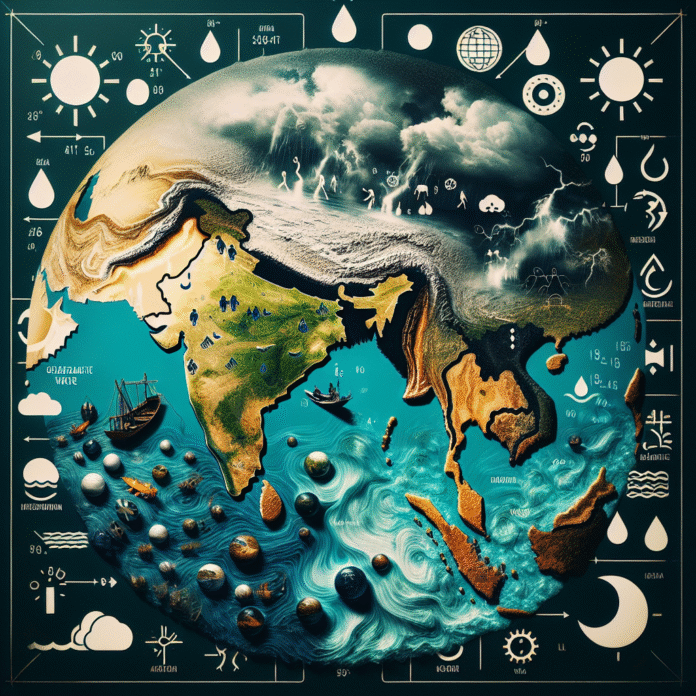Climate Challenges and Water Conflicts in South Asia
Climate Irregularities: Understanding South Asia’s Vulnerability to Water Conflicts
South Asia, a region characterized by its diverse geography and densely populated areas, stands at a critical juncture in its environmental and geopolitical landscape. The interplay between climate irregularities and water scarcity has heightened tensions among nations, making the region particularly susceptible to potential conflicts over water resources. As the effects of climate change become increasingly pronounced, the implications for water availability and management are profound.
The Climate Change Factor
The impact of climate change in South Asia is manifesting in various forms, including erratic monsoon patterns, prolonged droughts, and severe flooding. These irregular weather events disrupt agricultural productivity, threaten food security, and strain existing water supplies. For countries like India, Pakistan, and Bangladesh, which rely heavily on monsoon rains for their agricultural cycles, any deviation from normal weather patterns can have devastating consequences.
Shared Water Resources and Regional Tensions
South Asia is home to several major river systems, such as the Indus, Ganges, and Brahmaputra, which cross national borders and are crucial for the livelihoods of millions. The shared nature of these water resources often leads to disputes over water rights and usage. For example, the Indus Waters Treaty between India and Pakistan, established in 1960, has been a framework for sharing water resources, but rising tensions and accusations of water mismanagement threaten its stability.
Population Growth and Increased Demand
The region’s burgeoning population exacerbates the challenge of water management. As urban areas expand and agricultural demands increase, the competition for limited water resources intensifies. The situation is further complicated by inefficient water usage and pollution, which diminish the quality and quantity of available water. As the population continues to grow, the potential for conflicts over water rights becomes ever more likely.
Environmental Degradation and Its Consequences
Deforestation, industrial pollution, and over-extraction of groundwater are contributing to the degradation of water bodies in South Asia. This environmental strain diminishes the resilience of ecosystems and reduces the availability of clean water, leading to heightened tensions among communities and nations. The degradation of water quality not only affects human health but also impacts agriculture, exacerbating the cycle of scarcity and conflict.
Strategies for Cooperation and Conflict Resolution
To mitigate the risk of water wars, South Asian countries must prioritize dialogue and collaborative approaches to water management. Establishing joint water management frameworks, sharing data, and investing in sustainable water infrastructure can help ease tensions. Regional cooperation can also be fostered through platforms that encourage dialogue among stakeholders, including government officials, local communities, and civil society organizations.
Conclusion: A Call for Action
The intersection of climate irregularities and water scarcity presents a formidable challenge for South Asia. As nations grapple with the realities of climate change, proactive measures must be taken to address the underlying issues that drive competition for water resources. By fostering cooperation, investing in sustainable practices, and prioritizing equitable water distribution, South Asia can work towards a future where water is a source of collaboration rather than conflict. The path forward requires commitment, innovation, and a shared vision for a sustainable and peaceful region.


